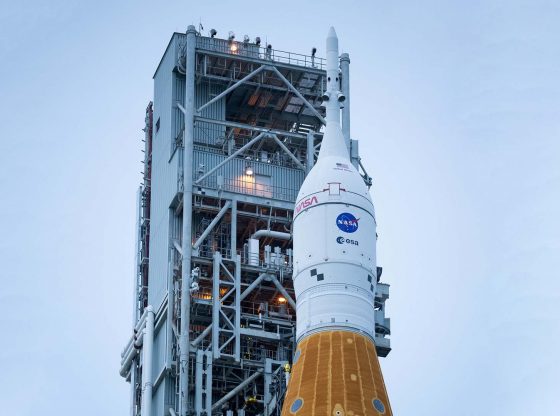NASA has recently announced its new launch attempt date for its Artemis I mission. The National Aeronautics and Space Administration said its new launch date for the spaceflight is set for November 14. Its 69-minute launch window will open at 12:07 a.m. ET. The test flight will be uncrewed, and the test flight will launch the Space Launch System, sending its Orion spacecraft around the Moon and back to Earth. The previous flights have been delayed three separate times.
Fox Business reports:
The first attempt in August was scrubbed due to a rocket engine temperature issue, while the second attempt in early September was scrubbed because of a fuel leak. Artemis I was later rolled back into its hangar at the Kennedy Space Center in Florida to protect it from Hurricane Ian.
The agency, which plans to roll Artemis I back onto Launch Pad 39B as early as Nov. 4, said in a blog post on Wednesday that minimal work is required to prepare SLS and Orion for its rollout.
“Teams will perform standard maintenance to repair minor damage to the foam and cork on the thermal protection system and recharge or replace batteries on the rocket, several secondary payloads, and the flight termination system,” NASA said.
If the launch on Nov. 14 is successful, Orion will travel into space for about 25-and-a-half days with splashdown in the Pacific Ocean on Dec. 9. Assuming the test goes well, astronauts would then climb aboard for Artemis II to fly around the moon and back as soon as 2024. NASA is aiming to send the first woman and person of color to the lunar surface by 2025.
According to Fox Business, the Artemis I rocket, which is 322 feet, is the most powerful ever constructed by NASA, outshining the Saturn V that took Apollo astronauts to the moon.
.@NASA is targeting the next launch attempt for the #Artemis I mission for Nov. 14. @NASAGroundSys teams will roll the @NASA_SLS rocket and @NASA_Orion spacecraft to the launch pad as early as Nov. 4: https://t.co/IID7eAgGDX pic.twitter.com/ayf7DHoWcj
— NASA Artemis (@NASAArtemis) October 12, 2022









